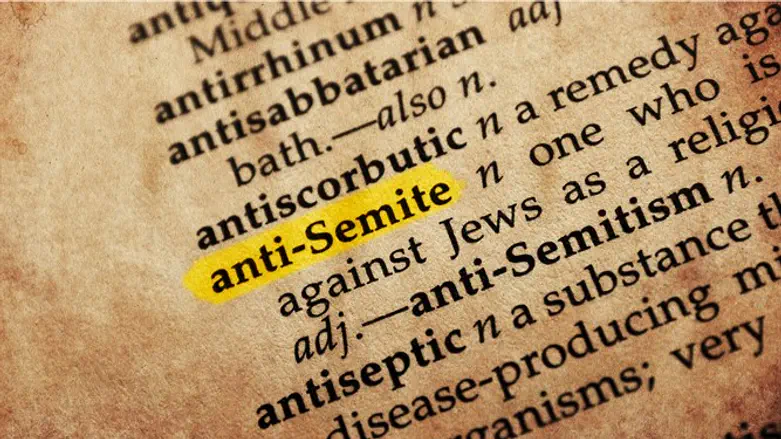
Polish police seized a banner reading “no Jews, communists and traitors allowed” from the entrance to a hostel owned by a National Radical Camp leader who is jailed for anti-Semitic hate speech.
Officers were sent to Dom Polski near the western city of Wroclaw Thursday night following the surfacing of images on social networks showing the banner on the gate to the Dom Polski hotel in the eastern suburb of Cesarzowice, Paweł Petrykowski, a spokesperson for the police department of the Lower Silesia Province, told TVP, Poland’s national public broadcaster.
The hotel, which featured the banner since spring, is owned by Piotr Rybak, an National Radical Camp leader who earlier this year was sentenced to three months in prison for burning an effigy of a Jew at a 2015 demonstration in Wroclaw against Muslim immigration, Cesarzowic Mayor Jolanta Szulc told TVP.
The regional prosecutor’s office is looking into charging Rybak with another indictment for racist hate speech in connection with the banner, Małgorzata Kalus, the prosecutor department’s spokespewoman, told TVP.
Several Jewish organizations, including the Anti-Defamation League and the From the Depths Holocaust commemoration organization, on Thursday called on Polish authorities to take down the banner and prosecute the parties responsible for it.
Rybak had been under house arrest until last week, when a District Court judge in Wrocław sent him to jail for violating the terms of his detention. Rybak violated those terms by participating in a nationalist march in Wroclaw on Nov. 11 that featured anti-Semitic rhetoric.
The same day, 60,000 people attended a larger march in Warsaw, where some participants waived anti-Muslim banners and shouted anti-Semitic slogans.
Rybak’s incarceration and police’s action on the anti-Semitic banner show that “The Polish judiciary has proven that they take the issues of hate speech seriously and are willing to use the full force of the law to ensure a feeling of safety and security for all their citizens,” said Jonny Daniels, founder of the From the Depths group, which complained to police about the racism on display on Nov. 11 in Warsaw.
That event focused international attention of Poland’s ultranationalist problem, which some critics of the government say has grown since 2015 because it is being tolerated by the ruling Law and Justice party. President Andrzej Duda has condemned the march, its anti-Semitic overtones and radical nationalism in general following the march.
Richard Spencer, an American white supremacist, was scheduled to attend but eventually did not show up. The Polish Press Agency reported earlier this week that he had been banned for five years from entering all of the 26 countries that make up the European Union’s visa-free Schengen area.
Some leaders of Polish Jewry, including Chief Rabbi Michael Schudrich, allege that under Law and Justice, intolerance has grown in Polish society “towards various minorities, including the Jews.” And Leslaw Piszewski, the president of the Union of Jewish Communities in Poland, in August complained in a letter to a senior politician that Jewish communities have greater need for security now.
But Artur Hoffman, the president of the TSKZ cultural group, which is the largest Jewish organization in Poland, said that Piszewski was exaggerating communal concerns as part of a “political war.”